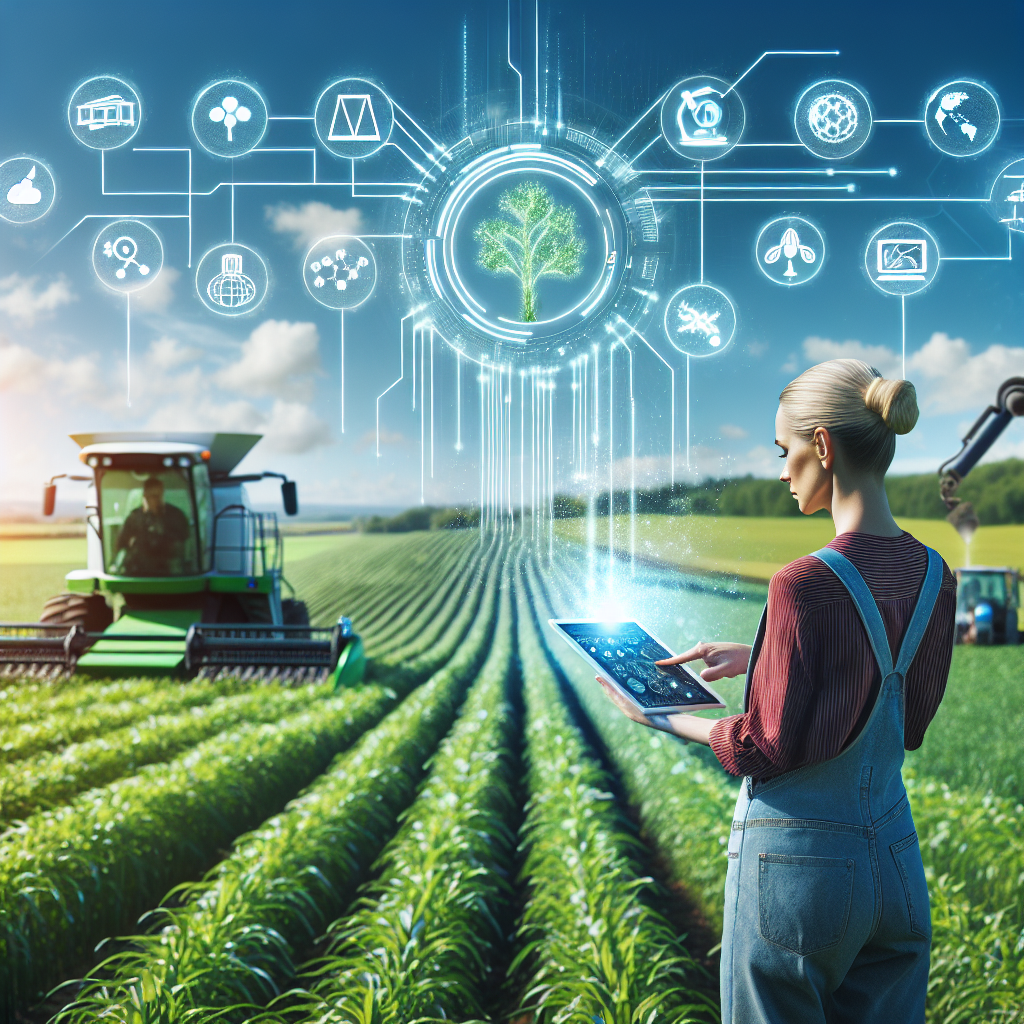Revolutionizing Farming: How AI is Transforming Agriculture
In recent years, there has been a significant shift in the way agriculture is being practiced around the world. Thanks to advancements in technology, particularly the rise of artificial intelligence (AI), farming has undergone a transformation like never before. AI has revolutionized the way farmers work, increasing efficiency, productivity, and sustainability. From precision agriculture to crop monitoring, AI is changing the face of farming in ways that were previously unimaginable.
One of the biggest impacts of AI in agriculture is the development of precision farming techniques. Precision farming involves using technology, such as GPS and AI-powered sensors, to analyze and manage farm data in real time. This allows farmers to make more informed decisions about their crops, leading to higher yields and reduced waste. For example, AI-powered drones can be used to monitor crop health and detect areas that need extra attention. This allows farmers to target specific areas with nutrients or pesticides, rather than treating the entire field, saving time, money, and resources.
Another key area where AI is revolutionizing agriculture is in the realm of crop monitoring. AI algorithms can analyze data gathered from sensors, satellites, and drones to monitor crop health, detect pests and diseases, and predict yields. This real-time monitoring allows farmers to respond quickly to any issues that arise, preventing crop loss and maximizing yields. By using AI-powered tools, farmers can make data-driven decisions that improve the overall health and productivity of their crops.
In addition to precision farming and crop monitoring, AI is also being used to improve soil health and fertility. AI algorithms can analyze soil samples and recommend the optimal amount and type of fertilizers to use. This helps farmers maximize crop yields while minimizing environmental impact. By using AI to analyze soil data, farmers can tailor their fertilizer applications to specific areas of the field, ensuring that plants receive the nutrients they need to thrive.
AI is also being used to automate routine tasks on the farm, such as irrigation and harvesting. AI-powered irrigation systems can monitor soil moisture levels and adjust watering schedules accordingly. This not only saves water but also ensures that crops receive the right amount of moisture at the right time. AI-powered harvesting machines can autonomously navigate fields, identify ripe crops, and efficiently harvest them without any human intervention. This automation reduces labor costs and increases efficiency, allowing farmers to focus on other aspects of their operations.
AI is also transforming the way farmers manage livestock. AI-powered sensors can monitor the health and behavior of animals, alerting farmers to any signs of illness or distress. This early detection can help prevent the spread of disease and ensure that animals receive timely care. AI algorithms can also analyze data from sensors to optimize feeding schedules and improve the overall health and productivity of livestock.
Overall, AI is revolutionizing agriculture in ways that were previously unheard of. By leveraging the power of technology, farmers are able to make more informed decisions, increase efficiency, and improve sustainability. As the world’s population continues to grow, the demand for food will only increase. AI is helping farmers meet this demand by enabling them to produce more food with fewer resources.
FAQs
Q: How does AI benefit farmers?
A: AI benefits farmers by increasing efficiency, productivity, and sustainability. By automating routine tasks, analyzing data, and providing real-time insights, AI helps farmers make more informed decisions that improve the overall health and productivity of their crops and livestock.
Q: Is AI accessible to all farmers?
A: While AI technology can be expensive, there are affordable options available to farmers of all sizes. Many companies offer AI-powered tools and services that can be tailored to individual farm needs and budgets.
Q: Will AI replace human labor on farms?
A: While AI can automate certain tasks on the farm, such as irrigation and harvesting, human labor will always be needed in agriculture. AI complements human labor by increasing efficiency and productivity, allowing farmers to focus on more strategic aspects of their operations.
Q: How does AI impact the environment?
A: AI can help farmers reduce waste, conserve resources, and improve sustainability. By analyzing data and optimizing farming practices, AI enables farmers to use fewer inputs, such as water and pesticides, while maximizing yields. This has a positive impact on the environment and promotes sustainable agriculture practices.
Q: What are the potential drawbacks of using AI in agriculture?
A: While AI offers many benefits to farmers, there are some potential drawbacks to consider. These include the initial cost of AI technology, the need for training and technical support, and concerns about data privacy and security. It is important for farmers to carefully evaluate the risks and benefits of adopting AI technology on their farms.
